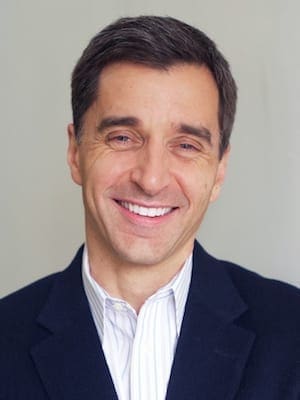I’m not sure whose idea it was that my interfaith group should visit Monticello, but that’s what we did.
There was something in the memo about Thomas Jefferson’s commitment to “religious liberty,” and how important it is for all Americans to be able to worship in the way they choose.
So, Jefferson himself (and not just his statue) might have been pleased to pose with Ben Romer, a Jewish rabbi; Ammar Amonette, a Muslim imam; Thomas Jefferson, author of the Declaration of Independence; Nathan Elmore, a Baptist campus minister; Jim Somerville, a Baptist pastor; and Bill Sachs, an Episcopal priest. Not pictured is Imad Damaj, head of the Virginia Muslim Coalition for Public Affairs, who snapped this photo.
We went from Monticello to the Kabob Palace in Charlottesville, Va., for lunch, and for a meeting with Peter Ochs, the Edgar M. Bronfman Professor of Modern Judaic Studies at the University of Virginia.
Ochs coined the term “scriptural reasoning” and is the co-founder of the Society for Scriptural Reasoning, which promotes interfaith dialogue among Christians, Jews and Muslims through scriptural study groups. So, after lunch, we studied some Scripture.
We looked at a verse from the Quran about the Creation (2:117), which reads: “Originator of the heavens and the earth. When He decrees a matter, He only says to it, ‘Be,’ and it is.”
We noticed how similar that one is to Genesis 1:1 that reads, “In the beginning, God created the heavens and the earth,” and continues in verse 4 with, “God said, ‘Let there be light,’ and there was light.”
And then we looked at John 1:1 that reads: “In the beginning was the Word, and the Word was with God, and the Word was God,” and continues in verse 3 with, “All things were made through him.”
The imam had trouble with that one. “How could the Word be God and God be the Word?” he asked. “Those sound like two different things and God, as you know, is One.”
And I said, “Well it says right here, ‘God was the Word’ and ‘the Word was God.’ The two are one and the same.”
We didn’t get much past that, but pause and reflect on that moment when the Baptist pastor and the Muslim imam were discussing Scripture in the most cordial, respectful way you can imagine.
That probably wouldn’t have happened if we hadn’t spent some time together already, getting to know each other and becoming friends.
Part of our “mission” in this interfaith group is to show all of Richmond that just because we come from different traditions and have different beliefs, we don’t have to be enemies.
We are trying to model true interfaith friendship. If you have eyes to see it, it is a way of bringing heaven to earth. And on that day, even though we didn’t agree on everything, we talked like old friends.
Jim Somerville is pastor of First Baptist Church in Richmond, Va. A version of this column first appeared on his blog and is used with permission.
Editor’s note: Ben Romer, Ammar Amonette and Imad Damaj are all featured in the EthicsDaily.com documentary “Sacred Texts, Social Duty.”
Jim Somerville is pastor of First Baptist Church in Richmond, Virginia.

